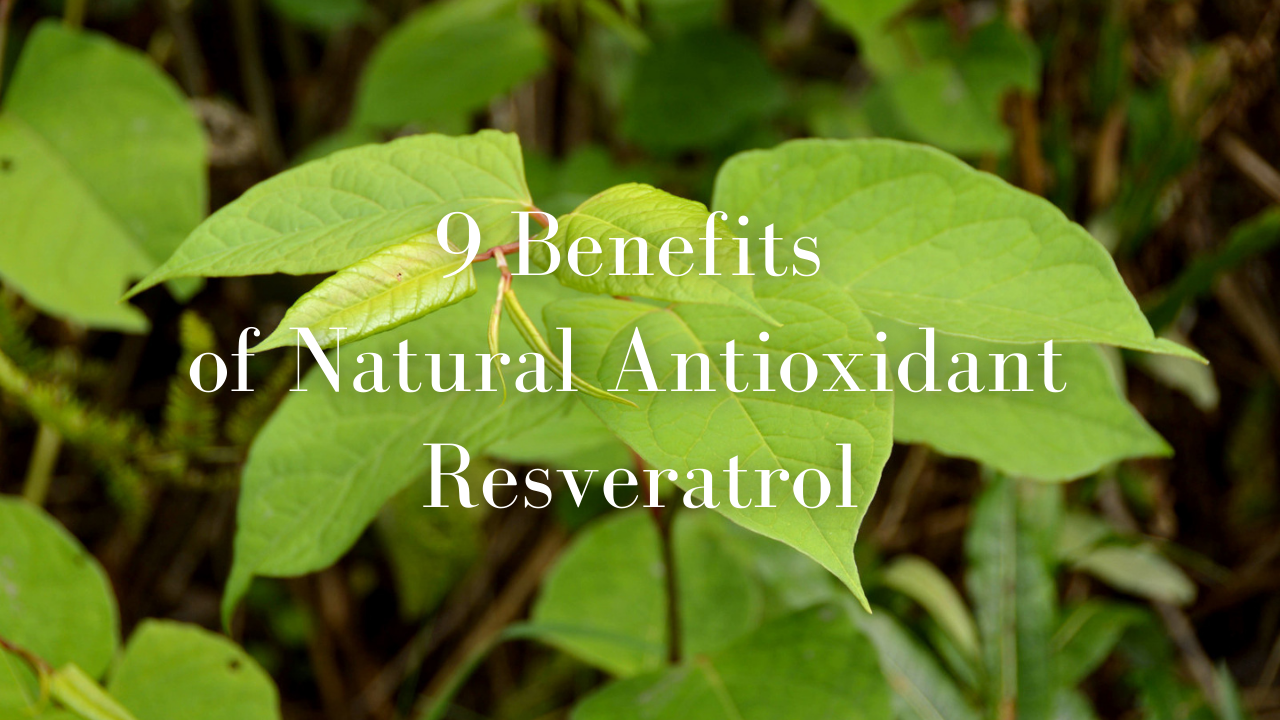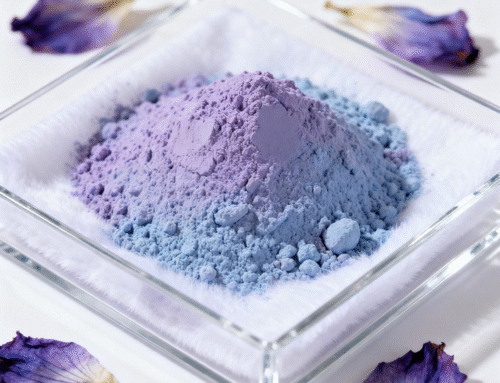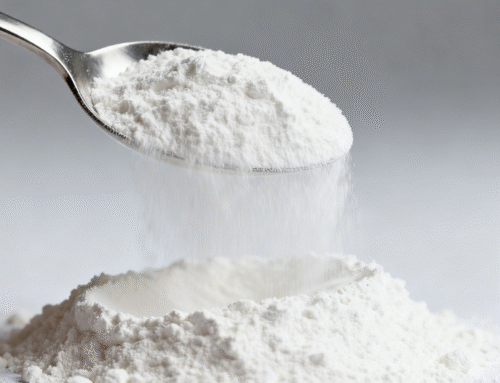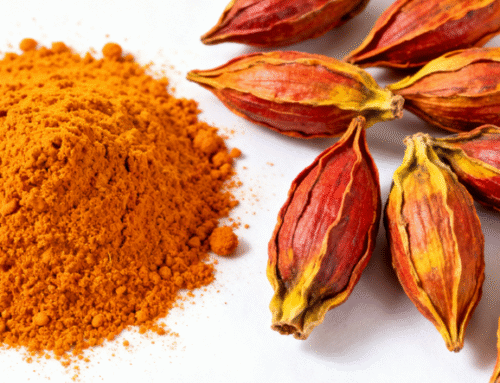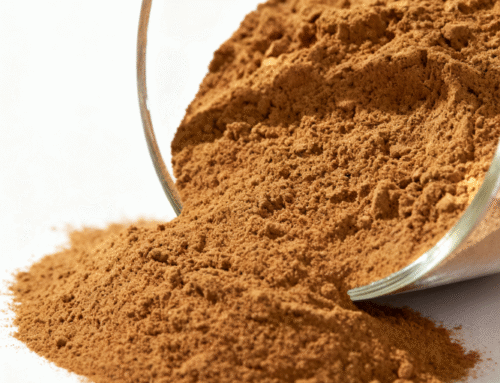Ⅰ. Introduction to Resveratrol
Resveratrol is a kind of non-flavonoid polyphenol compound with stilbene structure produced when plants are stressed by foreign biological or non-biological environmental conditions, which can make plants resist mechanical damage, ultraviolet radiation, bacterial and fungal infection . Resveratrol is mainly found in plants such as grapes, peanuts, mulberries and polygonum cuspidatum. It has many biological activities such as anti-oxidation, anti-aging, anti-tumor, prevention of cardiovascular diseases, and can improve the body’s immunity.
The naturally occurring resveratrol in plants is a mixture of cis and trans isomers, but the activity of resveratrol in the organism depends on the trans resveratrol that enters the blood circulation. In addition, most of the resveratrol is complexed by metal ions during the digestion process and cannot be absorbed. Only a very small amount can enter the circulatory system. Therefore, usually the naturally-occurring resveratrol can really be absorbed into the blood. There are even fewer trans isomers. Therefore, the superiority of all-trans resveratrol is self-evident.
Ⅱ. 9 benefits of trans resveratrol
ⅰ. Anti-cancer and anti-mutation effects
In 1993, studies by Jayafilake et al. showed that both trans resveratrol and cis-resveratrol have anti-cancer activity. The reason is that they can inhibit the activity of protein-tyrosine kinases. A research team further pointed out that resveratrol has greater anti-cancer activity in the three stages of cancer occurrence, namely, initiation, enhancement and development, and has inhibitory and even reversal effects on the three stages of cancer occurrence:
- Inhibit the initial effect. Reduce the formation of free radicals, induce the increase of phase II pharmacokinetic enzymes, and antagonize the effect of dioxins;
- Inhibit the enhancement effect. Inhibit cyclooxygenase (COX), inhibit catalase;
- Inhibition of development. Inhibit cancer cell proliferation, induce cancer cell differentiation, and induce cancer cell apoptosis.
Resveratrol is expected to be an inhibitor of tyrosine protein kinase PTK. Many medical studies have found that resveratrol has an effect on breast cancer, stomach cancer, colon cancer, prostate cancer, leukemia, ovarian cancer, skin cancer and other malignant tumor cells. Both have obvious inhibitory effects.
The paper proves that resveratrol can effectively inhibit cell activities related to various processes of cancer. As an antioxidant, antimutagenic and anti-inflammatory agent, resveratrol has shown its chemopreventive ability against cancer. It can prevent cell carcinoma and prevent the spread of malignant tumors. It can also inhibit protein chromine kinase and prevent the function of kinases. Plays an anti-mutagenic effect, and can also inhibit cell inflammation. Resveratrol can also inhibit cell inflammation.Inflammation of cells is related to arthritis and other diseases. Resveratrol can also inhibit protein tyrosine kinase, a substance that catalyzes tyrosine phosphorylation. This kinase is involved in the transmission of cytoplasmic information in mitotically regulated cells. The use of resveratrol to inhibit protein tyrosine kinase may play an anti-mutation effect by preventing the function of the kinase.
ⅱ. Cardiovascular protection
In folk, Polygonum cuspidatum, a traditional Chinese medicine rich in resveratrol, has long been used to treat and prevent hyperlipidemia and arteriosclerosis. Studies have shown that resveratrol mainly plays a role in preventing atherosclerosis, preventing coronary heart disease and protecting the cardiovascular system from the following aspects:
- Regulate blood lipids;
- Inhibit platelet aggregation, promote fibrinolysis, and anti-thrombosis;
- Protect vascular endothelium and inhibit endothelial cell proliferation;
- Protect vascular smooth machine cells and inhibit their proliferation;
- Anti-leukocyte effect;
- Antagonize the effect of endothelin-1 (ET-1);
- Anti-oxidation function of low-density lipoprotein.
Experiments to study the effect of platelet activation induced by endotoxin or thrombin have found that after pre-incubation of platelets washed with resveratrol, lipopolysaccharide alone or platelets activated by lipopolysaccharide and thrombin have an effect on collagen in physiological plasma concentrations. The adhesion is blocked. Platelets pretreated with resveratrol were also blocked from adhering to fibrinogen. Resveratrol and its derivatives are a type of plant antitoxin that has been studied more in recent years. Its cardiovascular protective effect has gradually become a research hotspot, and it is expected to make a difference in the development of drugs for the prevention and treatment of cardiovascular diseases.
A large number of studies have also shown that resveratrol is a substance that can effectively prevent cardiovascular diseases. Some researchers have found that resveratrol can significantly increase the expression of vasodilator NO synthase, and at the same time reduce the expression of vasoconstrictor endothelin, which in turn can relax blood vessels, lower blood pressure and reduce the risk of cardiovascular disease. In clinical studies, it has been found that people with endothelial dysfunction and subclinical cognitive impairment can cause rapid cerebrovascular expansion after eating resveratrol.
ⅲ. Prevent heart and liver damage
Resveratrol can inhibit the deposition of triglycerides and cholesterol in the liver of mice. It can also increase the levels of aspartate aminotransferase and alanine aminotransferase by inhibiting the fat peroxidation reaction in the liver of mice. By analyzing these two enzymes in the serum, diagnostic information about whether the heart and liver are good can be obtained.
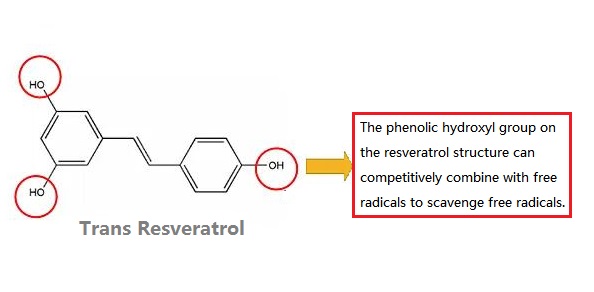
ⅳ. Antithrombotic function
Resveratrol can inhibit the synthesis of lipoxygenase, which is found in white blood cells, heart, brain, lungs and spleen. Therefore, resveratrol prevents the formation of blood clots in the blood vessels. And after the use of antihypertensive drugs such as clonidine, it can also inhibit the accumulation of platelets.
ⅴ. Improve immune system activity
Resveratrol can also promote the healing of scalds by strengthening the immune system. Someone has studied the efficacy of resveratrol in restoring suppressed cellular, humoral and non-specific immune functions in scalded mice. The controlled use of resveratrol provides a drug-dependent immunomodulatory effect. Studies on severely burned mice of different degrees show that resveratrol can restore its damaged functions, such as the ability to respond to antigen signals, proliferation, interleukin II synthesis and antibody synthesis through lymphocytes. After severely burned animals were treated with controlled resveratrol, their neutrophil levels and adhesion rates returned to near normal levels, and their survival time was prolonged.
ⅵ. Anti-oxidation and anti-free radical of resveratrol benefit
Role Resveratrol is a natural antioxidant found in plants. It plays an antioxidant role mainly by scavenging or inhibiting the generation of free radicals, inhibiting lipid peroxidation, and regulating the activity of antioxidant-related enzymes. Most of the polyhydroxy stilbene substances have anti-oxidation and anti-free radical effects. When resveratrol is at 1.3μg/mL, it can significantly inhibit the auto-oxidative hemolysis of rat red blood cells and the oxidative hemolysis caused by H2O2, and it has a significant effect on the production of lipid peroxides in the heart, liver, brain, and kidney of mice. Obvious inhibitory effect. It has also been confirmed that resveratrol can scavenge hydroxyl free radicals to protect DNA from damage. It can also inhibit the formation of glutathione disulfide and make glutathione in a reduced state, thereby inhibiting the formation of hydroxyl free radicals.
ⅶ. Anti-inflammatory and antibacterial effects
Resveratrol has an inhibitory effect on Staphylococcus aureus, Catacoccus, Escherichia coli, Pseudomonas aeruginosa, and has a strong inhibitory effect on orphan virus, herpes simplex virus and enterovirus, Coxsackie A and B groups . Resveratrol reduces the adhesion of platelets and changes the activity of platelets during the anti-inflammatory process to achieve anti-inflammatory.
ⅷ. Estrogen-like effects
Senile osteoporosis is a common skeletal complication after menopause in women, and its appearance is related to the decrease of estrogen. The chemical structure of resveratrol is very similar to the female hormone diethyl estrol, which can stimulate the proliferation and differentiation of bone cells, and has a significant effect on bone formation. Studies have shown that taking resveratrol as a prescribed dietary supplement
12 weeks can improve the quality of life of healthy women during menopause. Foods and health foods that use resveratrol as an estrogen additive can solve a series of diseases caused by menopause in women to a certain extent.
ⅸ. Other biological activities
Resveratrol has important biological effects and is of great significance for the prevention and adjuvant treatment of various human diseases. In addition to the above-mentioned biological activities, resveratrol also has a variety of biological activities such as improving human immunity, increasing bone density, inhibiting pathogenic bacteria, anti-shock, anti-allergic and so on.
Ⅲ. Application of resveratrol
- Pharmaceutical industry: Various medicines produced with resveratrol as raw materials are very popular in the international market and are in great demand.
- Health care products industry: Resveratrol is listed as “one of the 100 most effective anti-aging substances” by the “Anti-aging Scripture” of the United States. Resveratrol has been widely used in the health care product industry.
- Cosmetics industry: Resveratrol can effectively promote blood vessel dilation, has anti-inflammatory, antiseptic and moisturizing effects, is suitable for removing skin acne, rash, wrinkles, etc., and can be used in moisturizing, night cream, and moisturizing cosmetics.
Through the above content, we believe you have a deep understanding of resveratrol! Xi’an Herb Bio is a professional supplier from China, will provide you high-quality and competitive prices resveratrol. Welcome to contact us to learn about and order best resveratrol. If you also like this article, please share it with your friends and people in need.

